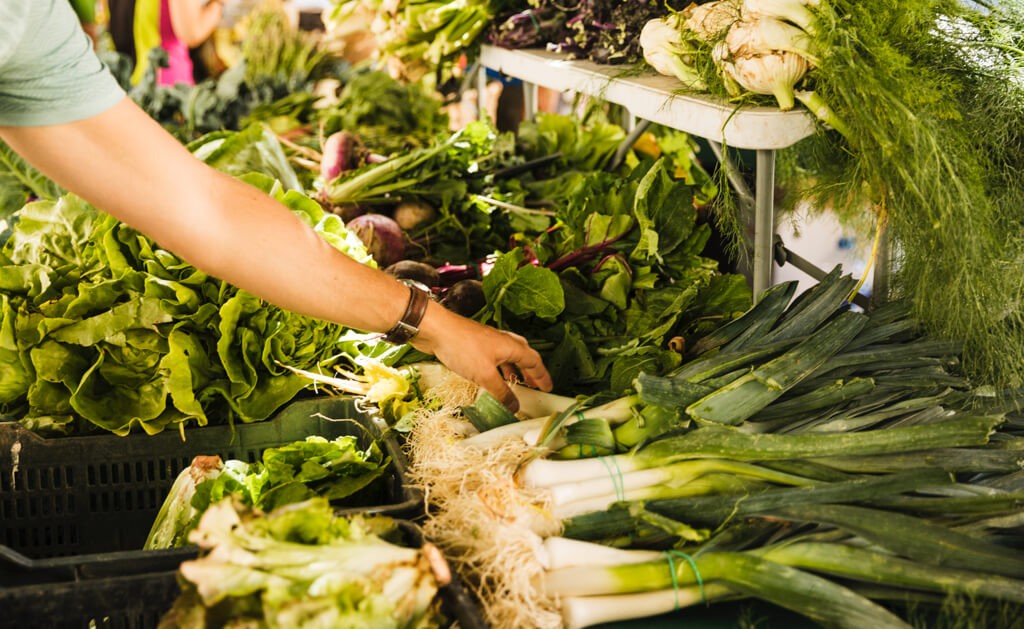Dec 12, 2024
If you were to travel back in time, packaged foods were everywhere. Processed foods reigned until the 1960s and 1970s, particularly in North America. Then, there was something of a revolution. People began opting for organic food to protest the agriculture industry's use of pesticides.
Alice Waters, a champion of local, sustainable agriculture, opened the first farm-to-table restaurant Chez Panisse in Berkley, California, in 1971. The movement made its way to Europe in 1986 when Carlo Perini founded the Slow Food Organization in Italy.
The basics
In simple terms, farm-to-table is the idea that food production, processing, distribution, and consumption should be integrated to enhance economic, social, nutritional, and environmental health. People have realised the importance of organic foods and ethical products, keeping in mind the sustainability and health components.
A report by the UN Food and Agricultural Organisation (FAO) stated that there are $10 trillion of environmental, social, and health costs hidden in food and farming systems.
In many ways, it encompasses the whole community to develop local food systems to keep the number of links in the supply chain minimal. Wherever possible, foods are sourced from local producers rather than shipped from long distances or imported. Here are its core tenets:
Supports local communities: When consumers buy directly from local farmers, they're investing in the local economy. Small farms are often the backbone of these economies.
Fresher, healthier food: When the food is grown locally and consumed soon after harvesting, it retains its flavour and nutrients. That's always better than produce that sits on trucks for days and weeks.
Increased transparency: Consumers know exactly where their food comes from and how it's produced. Farm-to-table prioritises building connections between producers and consumers.
Good for the environment: If you want to do your part in reducing the carbon footprint, farm-to-table is the way to go. Food isn't transported over long distances, and local food systems encourage sustainable agriculture practices like organic farming and crop rotation.
Into the culinary world
Going into the 21st century, the culinary world began to take note of farm-to-table in a big way. The idea is to reduce the distance food travels from its source to consumers' plates. In North America, it took off in the 1970s as a response to the rapid industrialisation of food systems.
Over the years, new generations of forward-thinking chefs and restaurateurs worldwide realised the potential of the farm-to-table concept. It's more just a trend for them. There are two main reasons why it's picking up.
Environmental impact: People are now more aware of how farming and food production affects the environment. They want to be a part of the solution by prioritising local produce.
Foster connections: There's something special about connecting with the food and the people who produce it. More people are interested in learning where their food comes from and how it's grown.
Challenges
While the farm-to-table concept has certainly grown over the past decade-plus, it does come with challenges.
Scalability: Keeping up with the growing demand can be a challenge. Large-scale industrial agriculture can produce more food at a lower cost. That makes it tougher for small local farmers to compete on price.
Seasonality: Seasonal produce might limit the availability of certain foods throughout the year. Consumers need to adjust their diets and expectations to align with what's locally available.
Affordability: The reality is that farm-to-table restaurants aren't necessarily pocket-friendly. It's often affiliated with gourmet cuisine.
Push forward
Farm-to-table as a concept has many things going for it. Ultimately, it's driven by people at all ends. Even in places like Dubai, which thrives off five-star attractions, localised sustainable options are cropping up thanks to a new generation of chefs.
Homegrown restaurants are now introducing menus filled with locally sourced produce from several farms on the city's outskirts. The city's evolving food scene extends beyond restaurants. Small farmers are advancing the UAE's local food supply.
At Smart Grow Farms, we're committed to supporting local farmers in growing the best produce sustainably.
Get more Insights
Get the latest on health, sustainability, and farming, delivered right to your inbox.


